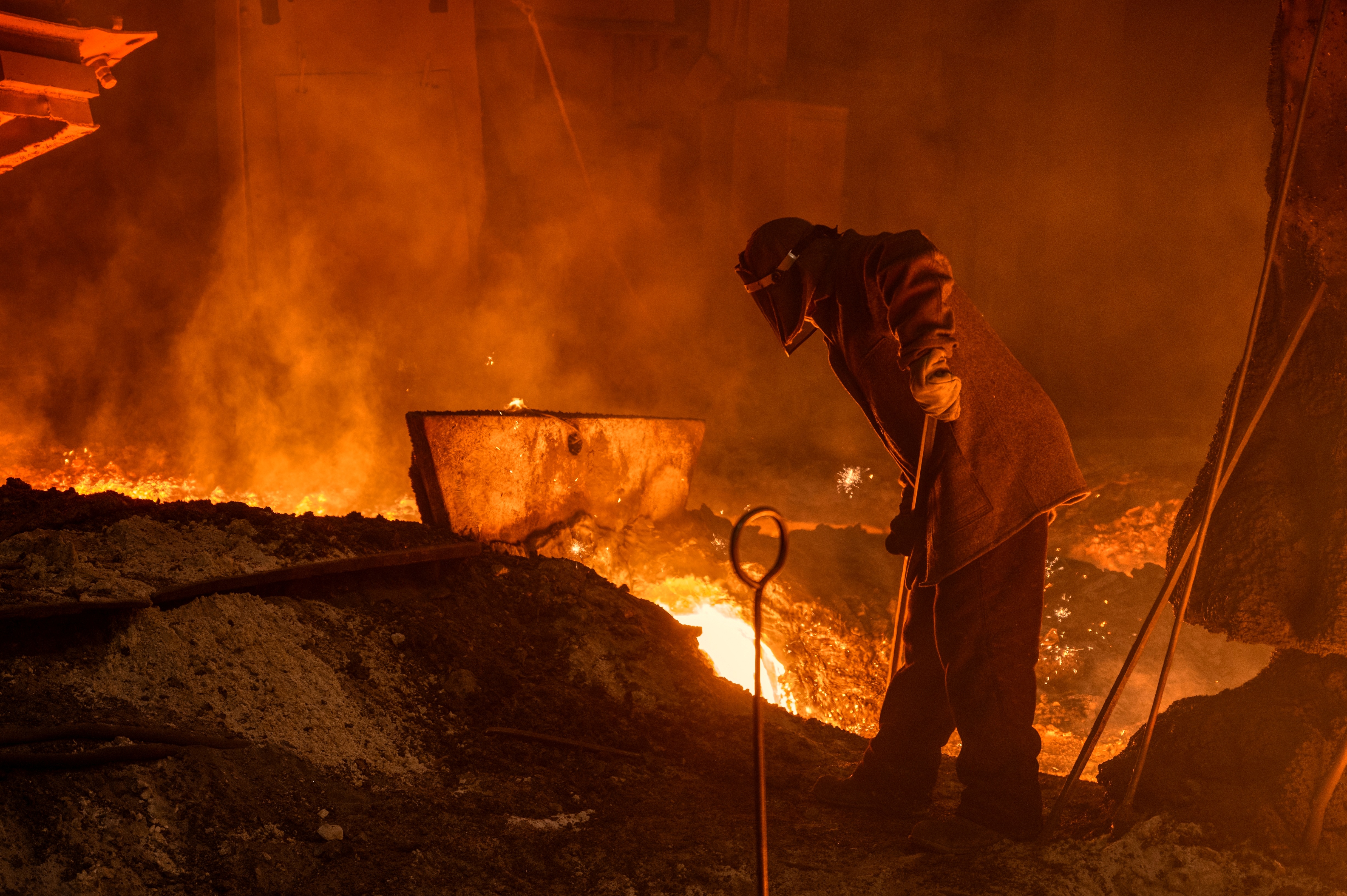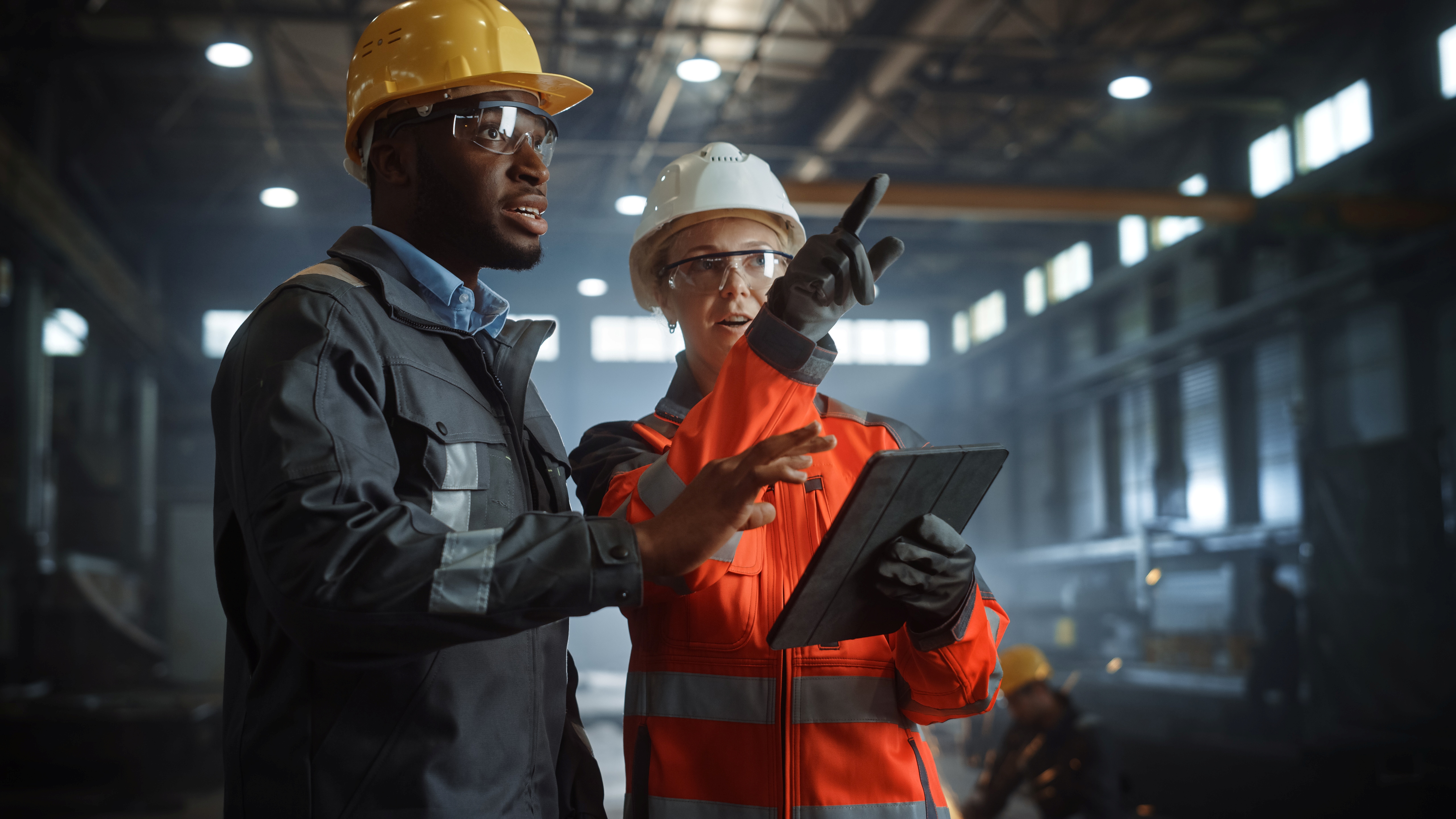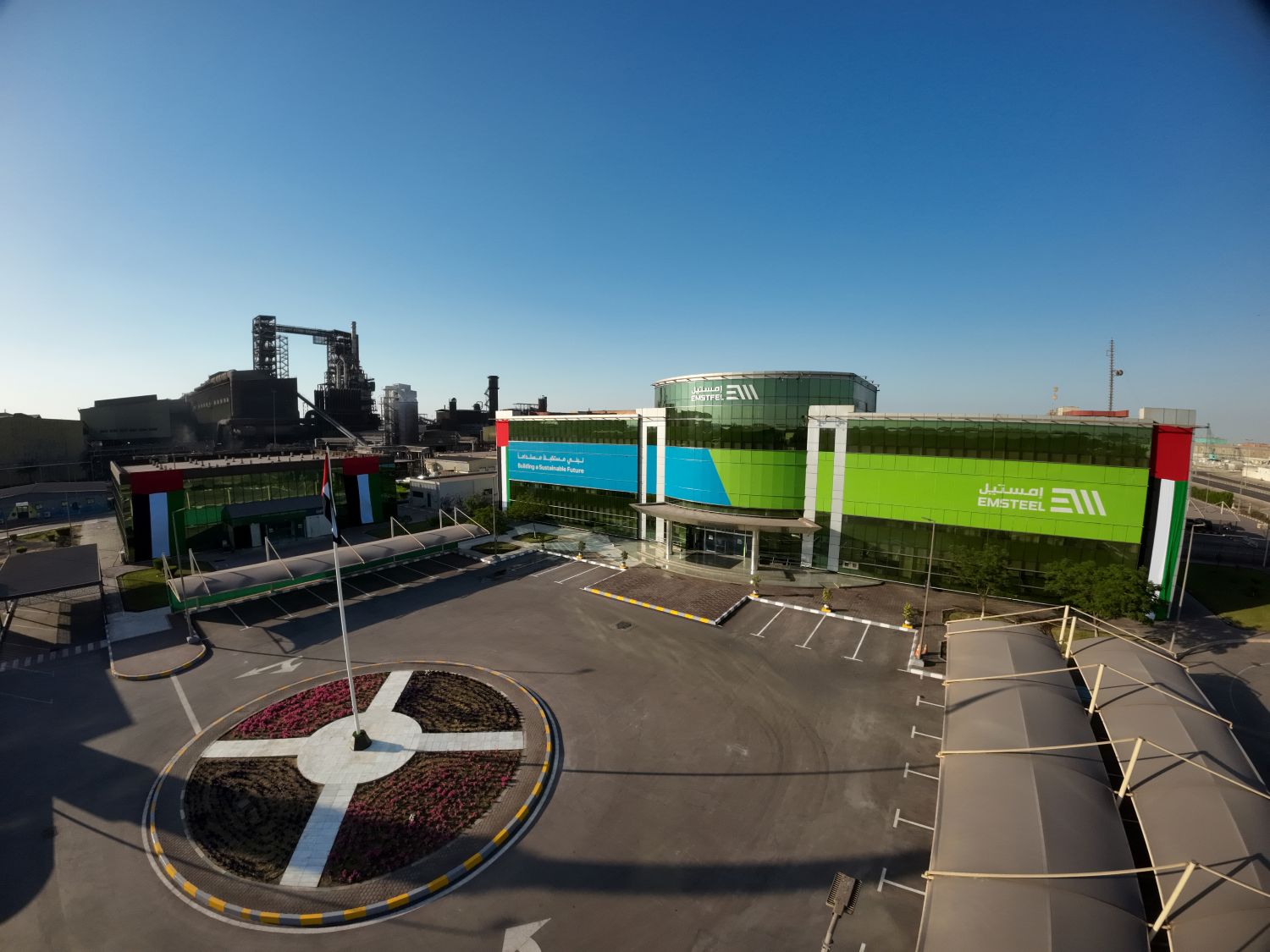.jpg)

Call for stakeholder feedback on the Copper Mark recognition assessment
The steel sector relies heavily on mined and processed minerals as an input to production processes. To help ensure that steel companies can increasingly source minerals from responsible suppliers, ResponsibleSteel recognises input material programmes that are well placed to credibly verify ESG performance of suppliers. ResponsibleSteel has developed a comprehensive recognition methodology to assess the standards and assurance mechanisms, programme governance and management, as well as permitted claims and labelling of input material programmes.
Based on assessments against that methodology in 2022, our Board of Directors decided to recognise Bettercoal, the Initiative for Responsible Mining Assurance (IRMA) and Towards Sustainable Mining (TSM). As a consequence, these three programmes are anchored to varying degrees in Principle 3 (Responsible Sourcing of Input Materials) of the ResponsibleSteel International Production Standard. More information on these three recognition assessments can be found here.
Recently, the Copper Mark applied for ResponsibleSteel recognition for copper, molybdenum, nickel, and zinc sites participating in its programme. The Copper Mark and ResponsibleSteel engaged in extensive discussions to produce a draft recognition assessment. The results of this assessment are now opened up to stakeholders to give them an opportunity to provide feedback on the results.
The draft recognition assessment of the Copper Mark can be found on our Resources page under 'Input Material Programmes'. Stakeholders can complete this form to submit feedback or comment directly in the document and send us an email, citing the respective criterion of the assessment.
The deadline for stakeholder feedback is the end of the day on 28th July 2024. In case of questions and to submit feedback, please email assurance@responsiblesteel.org.
In addition, the Copper Mark and ResponsibleSteel agreed on two conditions to enable recognition. The Copper Mark will provide a supplemental document stipulating these conditions for sites that participate in its assurance framework and want to be ResponsibleSteel-recognised:
- The following criteria of the “Risk Readiness Assessment Criteria Guide” version of 19 October 2023, which is the Copper Mark’s criteria for responsible production, have to be considered not only by mine sites but also by stand-alone metal processing, downstream processing, manufacturing and recycling sites if these sites want to be ResponsibleSteel-recognised: Closure and Reclamation, Community Development, Indigenous Peoples' Rights, Land Acquisition and Resettlement, Cultural Heritage.
- The Copper Mark will explicitly stipulate that the requirements specified in the “Risk Readiness Assessment Criteria Guide” version 19 of October 2023 are binding.
Following consideration of any feedback and the finalisation of the assessment, a recommendation on recognition will be put to the ResponsibleSteel Board of Directors for their decision.
Submit feedback using this form or learn more about ResponsibleSteel recognition here.


Webinar: Charting progress to 1.5°C through certification
For the first time, we are drawing a clear connection between what’s required to deliver a 1.5°C-aligned pathway for the global steel sector and ResponsibleSteel’s Decarbonisation Progress Levels. 'Charting Progress to 1.5°C through Certification' - a report set for publication at the start of July - demonstrates how ResponsibleSteel certification can drive the change needed for the steel industry to achieve the Paris Agreement.
Join us for our next webinar to discuss ResponsibleSteel's analysis and find out what it will take to get the industry on track for 1.5°C.
The webinar will take place via Microsoft Teams on Friday, July 5th at noon (BST) and will last one hour.
Learn more about certification against the ResponsibleSteel International Production Standard and ResponsibleSteel's Decarbonisation Progress Levels here.
If you would like to join this webinar for ResponsibleSteel members, please contact our Head of Membership and Communications, Joe Woodruff.


Arvedi Acciai Speciali Terni earns first ResponsibleSteel certification in Italy
Arvedi Acciai Speciali Terni (AST) is the latest to obtain core site certification against the ResponsibleSteel International Production Standard. The site in Terni is Italy's first site to become certified.
The Terni site, and its Service Center and Forging Division, were successfully certified following an independent audit by DNV. AST's certification is another step on the journey toward responsible steel production. The site aims to integrate sustainable practices into all business processes to ensure long-term value for stakeholders and the surrounding environment.
Annie Heaton, ResponsibleSteel's CEO, stated, “This first ResponsibleSteel site certification in Italy and for the Arvedi Group is another milestone for the steel industry. Acciai Speciali Terni, an EAF stainless steelmaker, has a strong focus on circularity, aiming to reduce waste as far as possible by increasing the use of recycled scrap, reusing refractories, and launching a project for recovering slag. The site has also set an ambitious interim target of reducing scope 1 and 2 emissions by 60% by 2028 on the road to net zero by 2050. Just as importantly, the site demonstrated a clear commitment to the wellbeing of its workers as evidenced by the site’s strong governance procedures and Health and Safety policies.”

The Terni site has been at the heart of the Italian steel industry since the location was chosen in 1884. AST is one of the leading stainless steel flat producers in Europe. The site also produces some of the largest forgings in special steels in the world through its Forgings Division. AST employs over 3000 workers and contractors and plays an important role in the surrounding community.
“By achieving Responsible Steel core site certification,” says Gianluca Gigli, Chief Technical Officer and Acciai Speciali Terni S.p.A. Board Member, “the company reinforces its way to responsible steel production, integrating sustainability into all business processes, in full compliance with ESG criteria. An achievement to be proud of, that will support the company towards environmental, economic and social transition with the aim to ensure long-term value for the benefit of all stakeholders and the local community. The certification process involved many of Acciai Speciali Terni’s departments and I would like to congratulate them for the result obtained.”
View the certificate and read the public audit summary here.


May 2024 Newsletter
May has been a busy month for ResponsibleSteel. We're excited to share two key highlights: the much-anticipated Version 2.1 of the Production Standard and the release of our first-ever Progress Report. We are also pleased to announce more certifications, including the first site certifications in Vietnam, Sweden, and Finland, marking significant milestones in our global growth. It's great to witness sites pursuing site certification, reaffirming their commitment to responsible practices. The next step is Certified Steel, which is now possible with the launch of Version 2.1.
In this month's newsletter, you will find key updates including:
- The launch of the ResponsibleSteel International Production Standard Version 2.1
- The first-ever ResponsibleSteel Progress Report
- New certifications and new members
- Upcoming ResponsibleSteel webinars and audits against the Production Standard
- News from our partners and more!
Click here to view ResponsibleSteel's May 2024 newsletter.


ResponsibleSteel and SteelZero: Aligning action to drive the steel industry toward net zero
What does SteelZero do? What sets the initiative apart from ResponsibleSteel? And how do we work together to drive the steel industry’s net-zero transition? Let’s answer these key questions.
SteelZero is a global initiative working to speed up the transition to a net-zero steel industry. While ResponsibleSteel provides a pathway for steelmakers and a forum to bring the steel supply chain together in pursuit of a responsible industry, SteelZero mobilises steel buyers to aggregate and amplify the voice of the demand side.
How do they do this? Businesses that join SteelZero must make a public commitment to use lower emissions steel for 50% of their steel requirement by 2030, which sets a clear pathway to achieving 100% net-zero steel by 2050 at the latest. This interim commitment includes purchasing lower emissions steel which is aligned to ResponsibleSteel’s Decarbonisation Progress Level 2.
Any business that uses, specifies, or procures steel and is looking to address its emissions is eligible to join SteelZero. Likewise, SteelZero members can also choose to join ResponsibleSteel to work with steelmakers and other members of the value chain to help shape ResponsibleSteel’s standards. One can’t underestimate the impact these commitments are having. For the first time, steel-using businesses are creating and expanding the market for lower emissions and near-zero emissions steel. They’re saying to their suppliers, you can have the confidence, as well as the business rationale, to invest in the net-zero transition and new ways of steelmaking which do away with fossil fuels. Because who are steelmakers going to listen to more than their customers?
Over 40 businesses and counting including the likes of Ørsted, Volvo Cars, and Maersk have already joined SteelZero and set themselves clear time-bound pathways to clean up their steel-related emissions. The demand is clear and accelerating all the time. As it has to. Now, steelmakers must accelerate their efforts to decarbonise and scale up supply of lower emissions steel to achieve the reductions needed by 2030.

So how do ResponsibleSteel and SteelZero work together?
SteelZero and ResponsibleSteel’s work is like two sides of the same coin. Both organisations are dedicated to achieving the same goal, but what sets them apart is the area of the value chain they focus on, the angle at which they’re trying to mobilise action, to make it happen.
But a central question to the transition is what do we mean by lower emissions and near-zero emissions steel? What emissions intensity do these classifications constitute? Just as we need industry alignment between steelmakers and steel users on this to get us to a net-zero industry, ResponsibleSteel and SteelZero are aligning their action to unlock this potential.
Steel users need to know what they’re asking for once they’ve made their SteelZero commitment – what specifically do I need from my supplier for it to qualify as lower emissions steel and help me meet my commitment? And steelmakers need to know what their customers want so they can align operations and investments to meet customer demands. There can be no room for interpretation leaving space for uncertainty, delays, and inaction. All business and investment decisions need to be laser-focused on the most effective action.

As partner to SteelZero, ResponsibleSteel works directly with the initiative to do this. ResponsibleSteel has developed an International Production Standard through a transparent multistakeholder process and extensive data research to determine what constitutes an equitable, effective global framework to drive the steel industry's decarbonisation. SteelZero uses the emissions intensity thresholds in the ResponsibleSteel’s International Production Standard to help its members to answer the question: What do I need from my supplier for it to qualify as lower emissions steel and help me meet my commitment?
By holding members accountable to commitment pathways aligned with ResponsibleSteel, consumers (SteelZero members) can be confident that the commitment they’re making is in alignment with best practice and will genuinely help them get the solutions they need to clean up their supply chains whilst supporting equitable, sector-wide decarbonisation globally. Through a strong focus on engaging with its members, SteelZero can drive that action, fast.
This is why collaboration and alignment are so critical. Together SteelZero and ResponsibleSteel are collectively setting best practice for steel users and steel suppliers to achieve a net-zero steel industry.
Learn more about SteelZero.


ResponsibleSteel launches new version of International Standard to drive down steel emissions and improve sustainability across the supply chain
The global steel industry employs over 6 million people and contributes around 3.8% to global GDP. Yet it also contributes around 10% to global greenhouse gas emissions from energy and industry according to the International Energy Agency (IEA).
The ResponsibleSteel International Production Standard Version 2.1, launched today, will play a critical role in driving down global steel emissions and driving up standards across the steel supply chain. Developed in consultation with ResponsibleSteel members and stakeholders from across the steel value chain and civil society, Version 2.1 strengthens ResponsibleSteel’s Progress Level requirements for responsible materials sourcing and climate change and greenhouse gas emissions.
As global leaders look for ways to mitigate the impacts of climate change, it’s more important than ever that the steel industry moves to decarbonise and adopt more responsible production practices. Version 2.1 of the Standard provides the steel industry with a technical roadmap to net zero and allows producers to demonstrate tangible progress not only on decarbonisation but across other key environmental and social issues such as biodiversity, water stewardship, pollution, labour rights and more.
Gerry Tidd, Chairman of ResponsibleSteel’s Board of Directors commented, “The ResponsibleSteel International Production Standard is the result of extensive development and stakeholder input and has been widely endorsed by highly respected organisations such as the International Energy Agency. We have listened to feedback from across the steel industry, civil society and others and updated the Standard to ensure it is both effective and workable. We are proud to launch Version 2.1 of the industry’s most robust, high-quality standard - one that is built on a foundation of integrity and transparency.”
Steelmaking sites globally are already making progress. ResponsibleSteel has over 80 sites in 19 countries certified against the International Production Standard’s Core requirements. With the revisions incorporated in Version 2.1, steelmakers are now set to pursue the next step on ResponsibleSteel’s certification journey: certified steel.
Steelmakers who meet the revised Progress Level requirements for responsible materials sourcing and decarbonisation will for the first time be able to label and market their products as ResponsibleSteel certified.
“This will give steel buyers – all the architects, automakers, builders and manufacturers - confidence that the steel they are procuring has been produced responsibly following a credible independent assessment,” Mr Tidd said.
Annie Heaton, CEO of ResponsibleSteel stated, “An increasing number of players have opinions about what so-called ‘green steel’ means. The ResponsibleSteel International Production Standard provides a clear, credible and consistent way to define it not only by providing a fair and universal benchmarking system for low-emissions steel globally but by charting a roadmap towards responsible steelmaking every step of the way.”
She continued, “We must also remember that truly responsible steelmaking goes beyond mitigating carbon, to other environmental and social impacts, including the rights of the millions of people working in the industry and across the supply chain as well as local communities.”
Now is the time for the steel industry to pick up the pace to meet the goals of the Paris Agreement and the Sustainable Development Goals, by meeting the Progress Level requirements of the ResponsibleSteel International Production Standard Version 2.1. This way, we will create a universally consistent, credible market for responsible low-emissions steel.
Learn more about the ResponsibleSteel International Production Standard V2.1 here.


Outokumpu earns ResponsibleSteel certification for all of its production sites in Europe
Outokumpu has achieved ResponsibleSteel certification for all seven of its production sites in Europe. The sites are spread across Germany, Finland and Sweden making Outokumpu the first to obtain certification in the latter two countries as well as the first in the Nordic region more broadly.
Outokumpu, a global leader in the stainless steel industry, became a member of ResponsibleSteel in 2019. For Outokumpu, the ResponsibleSteel International Standard provided a tool to evaluate and strengthen the company’s sustainability work through an ambitious industry-level framework with a beyond-compliance approach.
Heidi Peltonen, Vice President of Sustainability at Outokumpu, stated, “The ResponsibleSteel Standard is highly needed to provide a systematic framework to evaluate the sustainability of steel holistically. While the steel industry accounts for 7–9% of global greenhouse gas emissions, at the same time it plays a pivotal role in the green transition. Outokumpu has an ambitious climate commitment to keep global warming at 1.5 degrees. Beyond that we are committed to the UN Guiding Principles on Business and Human Rights across our value chain and follow the highest standard for ethical business conduct. ResponsibleSteel addresses environmental, social and governance topics and drives companies' sustainability work forward in all these areas. We are extremely proud to receive the certificates as the first mover in the Nordics, enabling us to create value for our customers by supporting them to choose sustainably produced stainless steel with a third-party validation.”
The certification process was conducted between 2021 and 2023 and included rigorous independent audits carried out by DNV. The auditors highlighted the strong commitment of the sites to health and safety and interviews with workers across the sites demonstrated a high employee satisfaction rate. Collectively, the seven sites employ over 5,800 workers and contractors.
.jpg)
“The ResponsibleSteel certification is both about the process and the result. The certification process was extensive, including for example site-specific self-assessments with related audits and on-site interviews with workers and contractors. As for the result, we received excellent feedback on our achievements, especially on decarbonisation and our efforts to ensure a good and safe place to work. The process also helped us to identify further actions to build on our sustainability ambition – such as those related to stakeholder engagement, social responsibility as well as biodiversity and water management across our value chain. It also increased credibility and transparency of our overall sustainability work,” said Anna Vainikainen, Head of Human Rights at Outokumpu.
Outokumpu is committed to the Science Based Targets initiative's 1.5 degree target and is the only stainless steel producer with a target approved by the initiative. To meet this target, Outokumpu are working to improve energy efficiency in its operations. In 2022, over 85% of the company's electricity was already coming from low-carbon sources.
Annie Heaton, CEO of ResponsibleSteel, commented, “Outokumpu has already set a near-term science-based target to reduce emissions from all three scopes by 42% by 2030 compared to 2016. This site certification process has provided a tool for Outokumpu to develop its sustainability work and its transparency in line with best practice on ESG for the steel industry. The next step will be progress level certification and we look forward to working with Outokumpu as we develop Decarbonisation Progress Levels specifically for stainless steel sites to enable them to work towards certified steel.”
To learn more about these certifications, take a look at the certificates and read the public audit summaries here.

.png)

ResponsibleSteel publishes first-ever Annual Progress Report
Over the last eight years, ResponsibleSteel has gone from strength to strength. During that time, ResponsibleSteel has built up a thriving community of over 150 members and created the first-ever International Standard to drive the responsible production of net-zero steel, globally.
We’re driving industry progress
We now have certified sites in 14 countries employing over 220,000 workers and producing over 120 million tonnes of steel. In this first annual Progress Report, we take stock of the enormous strides ResponsibleSteel and our members have made to deliver on our shared mission and celebrate our collective achievements.
We also look forward as we build momentum toward some exciting announcements coming up this year. Version 2.1 of the ResponsibleSteel International Standard will be published this month and a new Downstream Chain of Custody Standard later this year. Most significantly, we expect the first steelmaking sites to achieve ResponsibleSteel certified steel this year, a global first for the industry.

We’re recognised globally
ResponsibleSteel continues to be recognised as a leader amongst sustainability initiatives, most notably by the IEA in their second report to the G7 on ‘Emissions Measurement and Data Collection for a Net Zero Steel Industry’ and more recently, Lead the Charge in their ‘Assessment of Third-Party Assurance and Accreditation Schemes in the Minerals, Steel and Aluminium Sectors’. And as more initiatives focusing on steel sustainability emerge, we’re playing a critical role in convening the sector and driving industry alignment to accelerate a net-zero future.
Come with us
This is only the beginning. We have a long journey ahead of us, but with the support of our members and stakeholders, we will continue to work to drive industry progress.
Read our full 2024 Progress Report here.


BlueScope Vietnam earns first ResponsibleSteel certification in Southeast Asia
The NS BlueScope Vietnam Phu My site is the company’s third site certification following BlueScope Port Kembla in 2022 and Western Port last year.
The site began construction in 2002 and opened its doors two years later in 2004. At the time, it was the first metal coating line in Vietnam to apply zinc and aluminium technology to its products. Now, the site produces 187,000 tons of coated and uncoated cold-rolled coil annually and employs over 200 workers and contractors.
Annie Heaton, CEO of ResponsibleSteel commented, “What singles the certification of BlueScope Vietnam out is that it is the first certification in the country, the first in Southeast Asia. This demonstrates real leadership.”
Obtaining ResponsibleSteel site certification is the latest step in NS BlueScope Vietnam’s broader plan to implement responsible practices and urge its partners and suppliers to do likewise in order to build a more sustainable steel community. In 2022, NS BlueScope Vietnam was also the first coated steel manufacturer in Vietnam to earn the Singapore Green Building Council’s ‘Green Label’ certification.
.png)
Mr. Vo Minh Nhut, President of NS BlueScope Vietnam, stated, “This is a proud milestone in our sustainable development journey aligned with NS BlueScope's ESG standards, further affirming that we are not only a technology leader in the pre-painted steel industry but also a pioneering business in ESG practices. We sincerely appreciate the support and companionship of our esteemed partners during this time, which has motivated us to continue growing and increasingly contribute towards building a sustainable and thriving business community.”
Extensive interviews with the site’s workers also emphasised the site’s focus on risk management, health and safety, and employee engagement including issue resolution and grievance, feedback and support mechanisms, training and development opportunities, reward and recognition mechanisms, and support with flexible working arrangements. Notably, at the time of the audit, 41% of the site’s workers and contractors were female and the importance placed on promoting diversity and fostering an inclusive workplace was clear.
The BSI audit team commended the site’s commitment to becoming ResponsibleSteel certified, noting the effort made to align with the ResponsibleSteel International Standard including expanding and revising some of the site’s existing policies and procedures. The auditors particularly highlighted the strength of the site’s water stewardship and stakeholder engagement programmes. NS BlueScope Vietnam has also set a target to reduce GHG emissions (scope 1 and 2) by 30% by 2030 against a 2018 baseline.
Click here to view BlueScope Vietnam's certificate and audit summary.
.png)


April 2024 Newsletter
This month has been busy for our certification programme. SIJ earned the first certification in Slovenia and three years on from the first certifications back in 2021, sites are now beginning to undergo re-certification against the Standard. And we have a lot more coming up in May, kicking off with a joint webinar with SteelZero and culminating in our AGM and the launch of Version 2.1 of the Standard.
In this newsletter, you will find updates on:
- Standards developments
- New certifications
- Upcoming audits and events
- Public consultation reminder
Click here to view ResponsibleSteel's April 2024 newsletter.


Member webinar: Find out more about SteelZero
We invite ResponsibleSteel members to join this upcoming webinar to get to know SteelZero better and understand the opportunities available for engaging with their work and their members. The webinar will include speakers from ResponsibleSteel and SteelZero, and you will have the opportunity to ask questions to both organisations.
The webinar will be hosted via Microsoft Teams on Wednesday, May 8th at 1:00 pm (GMT+1).
SteelZero is an initiative hosted by the Climate Group in partnership with ResponsibleSteel. SteelZero brings together downstream companies in the steel supply chain to send strong demand signals to global markets, shifting them towards the production and sourcing of net-zero steel. The initiative’s members make a public commitment to procure 50% of their steel by 2030 from producers on the pathway to net zero and to procure 100% net-zero steel by 2050.
Register for the webinar here.


Revisions to ResponsibleSteel’s Principle 10: Greenhouse Gas Emissions and Climate Change
Following a 12-month test phase and a public consultation, ResponsibleSteel has introduced revisions to Principle 10 of the ResponsibleSteel International Standard including revised Progress Levels to assess steel decarbonisation and encourage increased recycling rates.
The launch of additional requirements for greenhouse gas emissions in September 2022 as part of the ResponsibleSteel International Standard Version 2.0 was a crucial step in driving industry progress towards near-zero steel. The Principle 10 Progress Levels were designed to not only accelerate the production of low-emissions steel by individual steelmakers, but to also drive the decarbonisation of the entire global industry and avoid a dash for scrap that would deliver no net gains.
Currently, there is no reliable data on the average emissions across the steel industry. As part of the work on Principle 10, ResponsibleSteel developed a unique dataset to enable the evaluation of emissions from any tonne of steel produced anywhere in the world with any level of scrap content. Reviewing and refining this dataset and revising our decarbonisation thresholds ensures the ResponsibleSteel Progress Levels remain the reliable benchmark for steel globally.
During the test phase for Principle 10, the ResponsibleSteel Secretariat tested the rigour of the Progress Level requirements by convening a working group of steelmakers. The proposed revisions to Principle 10 subsequently underwent a public consultation to obtain additional stakeholder feedback. We’re now pleased to announce that these revisions have been finalised and accepted by the ResponsibleSteel Board of Directors.
ResponsibleSteel is committed to continuously accelerating progress towards near zero on a global scale. The revisions to Principle 10 represent a 150 kg CO2e/t crude steel increase in the emissions intensity thresholds for Progress Level 1 on the high-scrap end of the scale. This revised Progress Level 1 and the corresponding changes to Levels 2 and 3, reflect the current state of steel industry emissions and the shallower gradient aims to encourage increased recycling rates within the bounds of end-of-life scrap availability. These revisions, as well as other revisions relating to waste energy and non-ferrous metal and ferro-alloy additives, will be incorporated into Version 2.1 of the ResponsibleSteel International Standard expected to be published in May 2024.
.png)
ResponsibleSteel’s Progress Levels are designed using a scrap variable approach to reward improvement across both scrap-based and primary steelmaking (i.e. steelmaking using iron ore) to drive down steel emissions globally. Progress Level 1 represents a distribution of existing steel sites where approximately 50% sit ‘below’ the threshold while Progress Level 4 is designed to align with the near-zero threshold of the International Energy Agency (2021) and Levels 2 and 3 provide regular points of progress on the journey from Levels 1 to 4.
It’s time to pick up the pace. To ensure a 1.5C degree future, we need every steelmaking site in the world to have achieved Progress Level 1 and significant progress made toward Progress Levels 2 and 3 by 2030. And we cannot rely on the deep decarbonisation efforts of a select number of sites alone. We must work to move the whole industry towards near zero at speed.
For more details on the revisions to Principle 10, read our summary of Principle 10’s Consultation Outcomes. If you have any questions on the revisions or want to find out more about how ResponsibleSteel’s Decarbonisation Progress Levels are supporting steel makers on the journey to near zero, please contact standards@responsiblesteel.org.

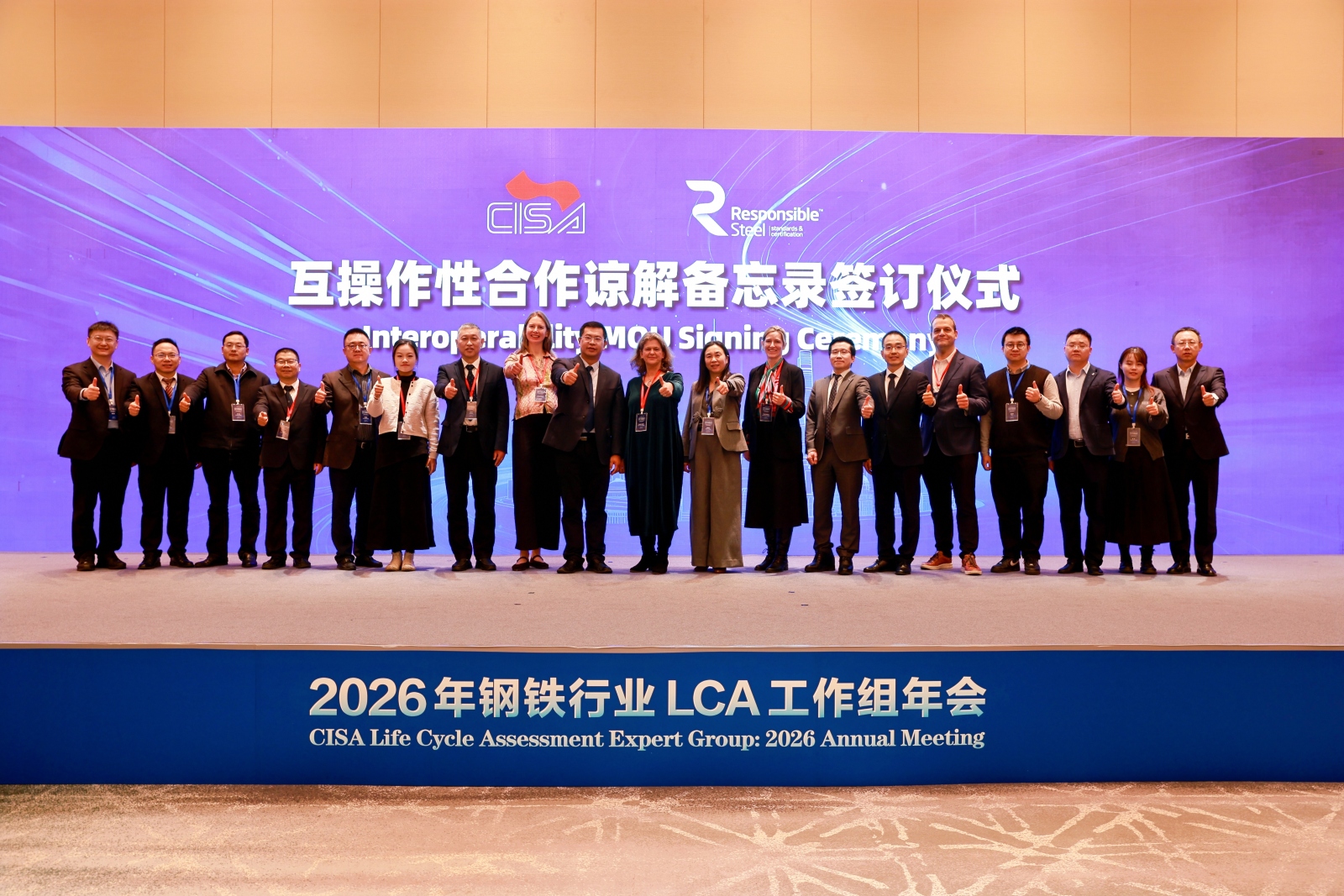

.jpg)
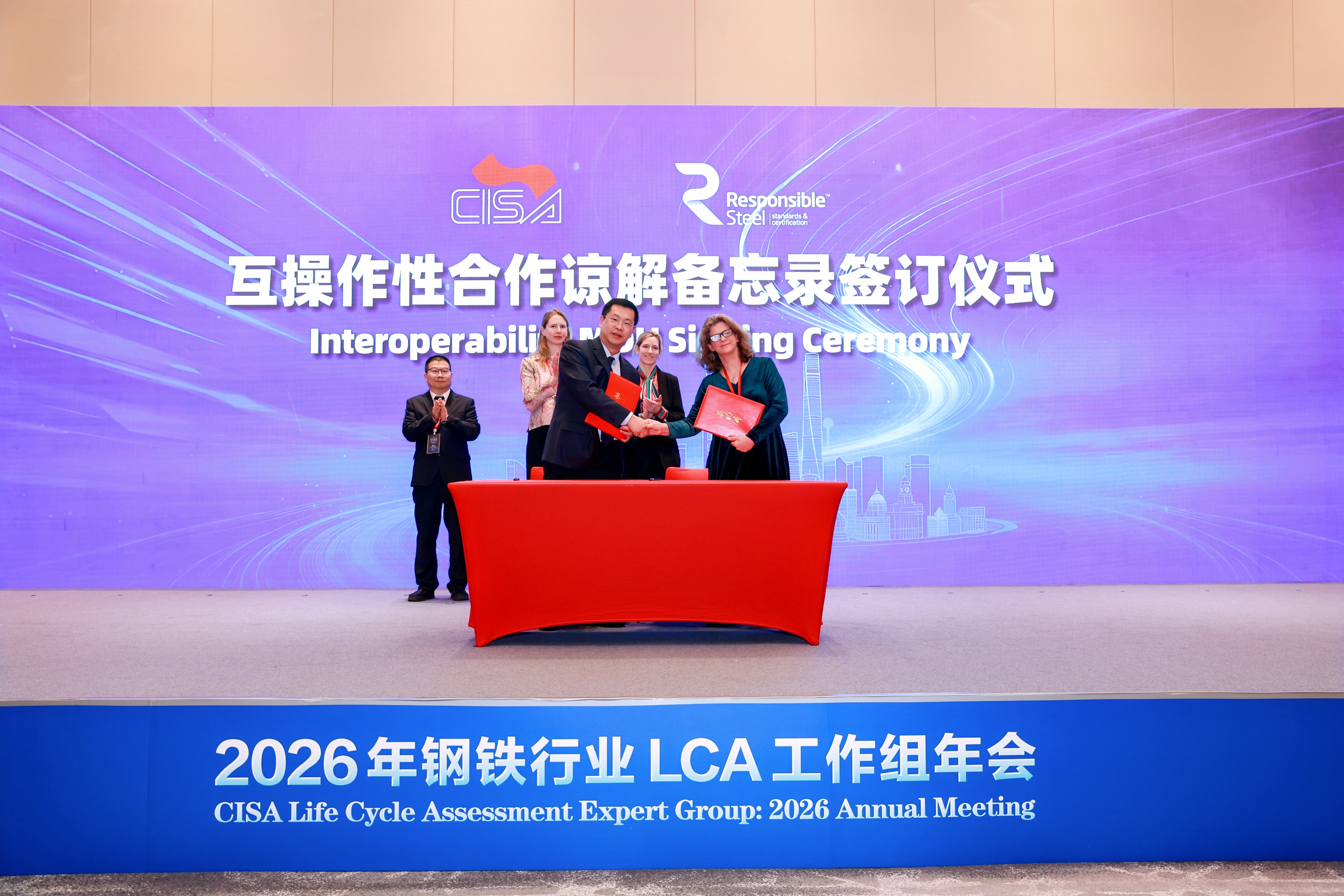
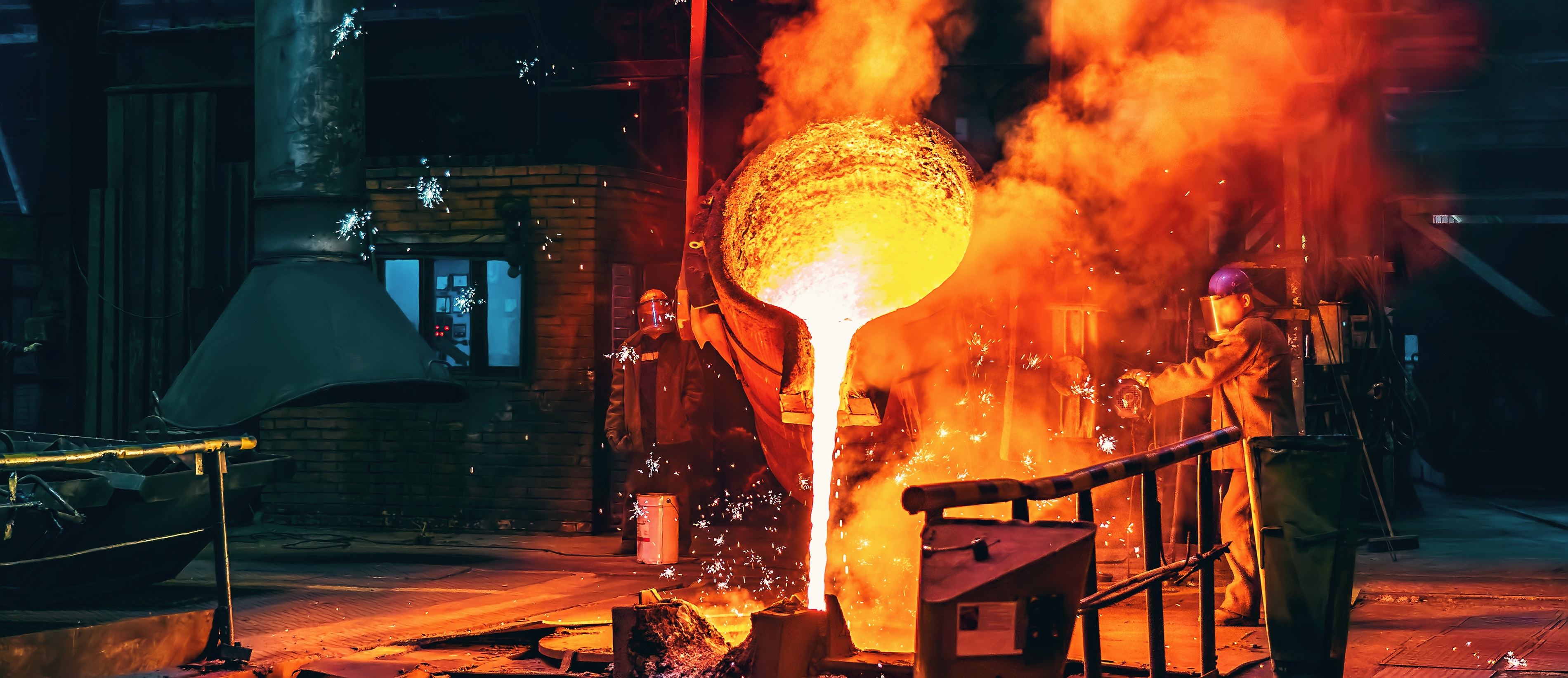

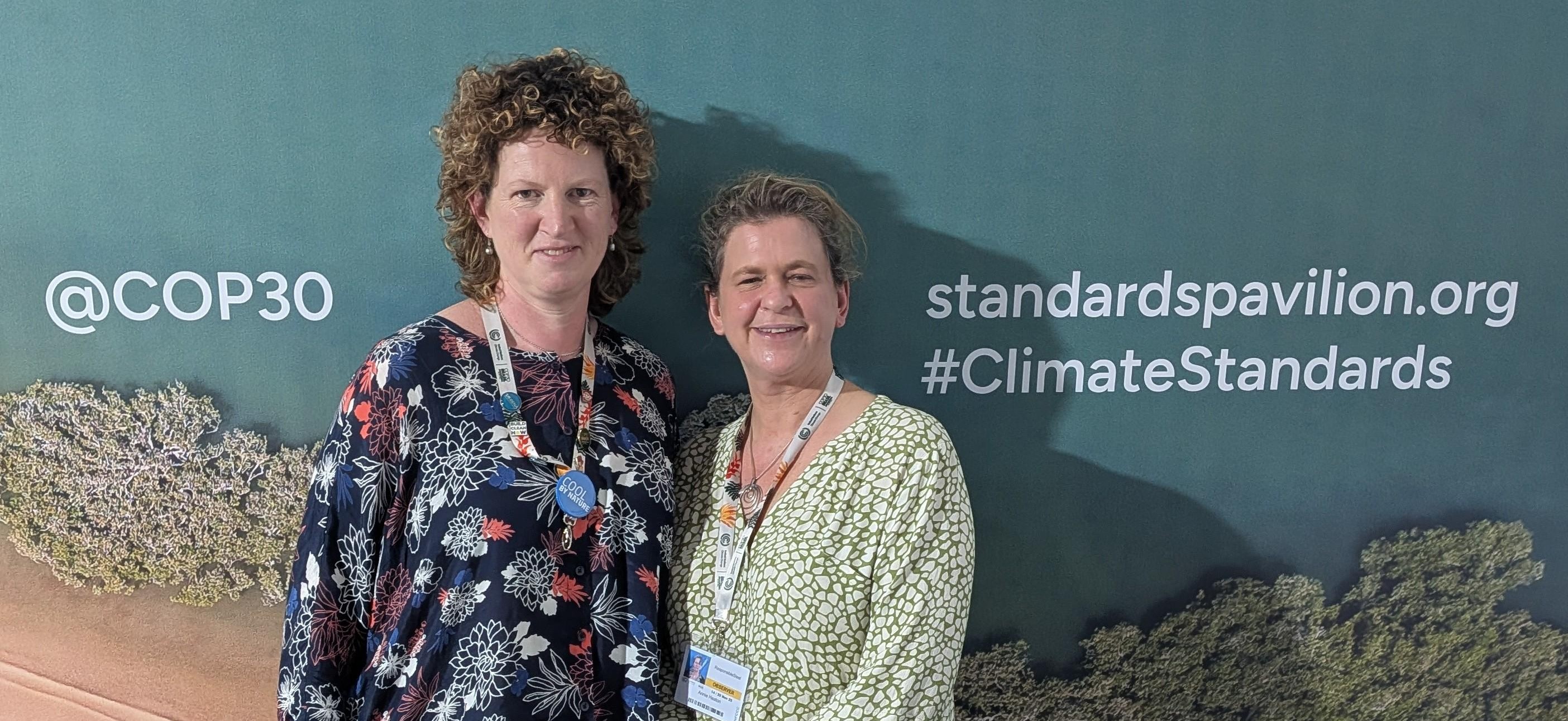
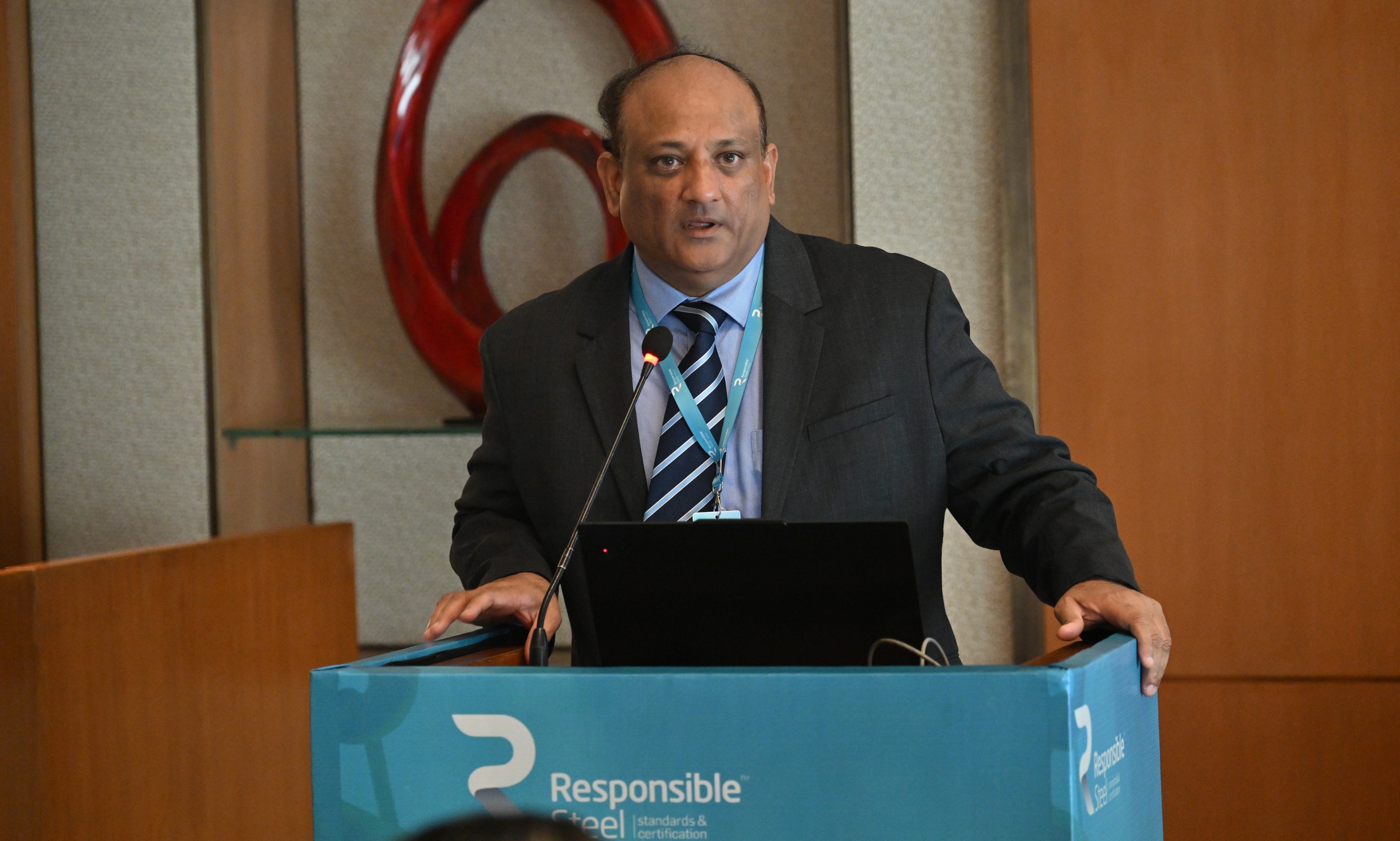
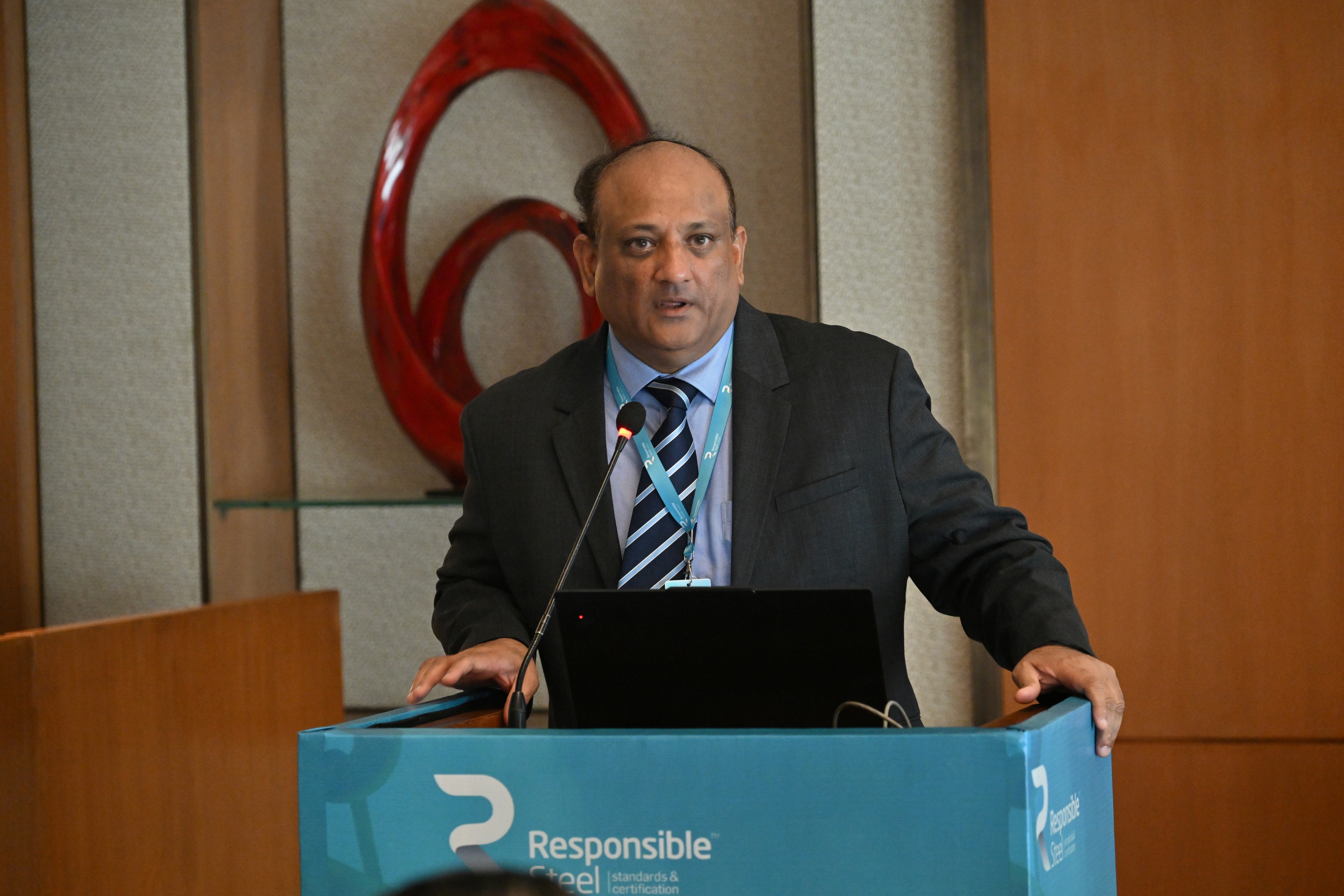
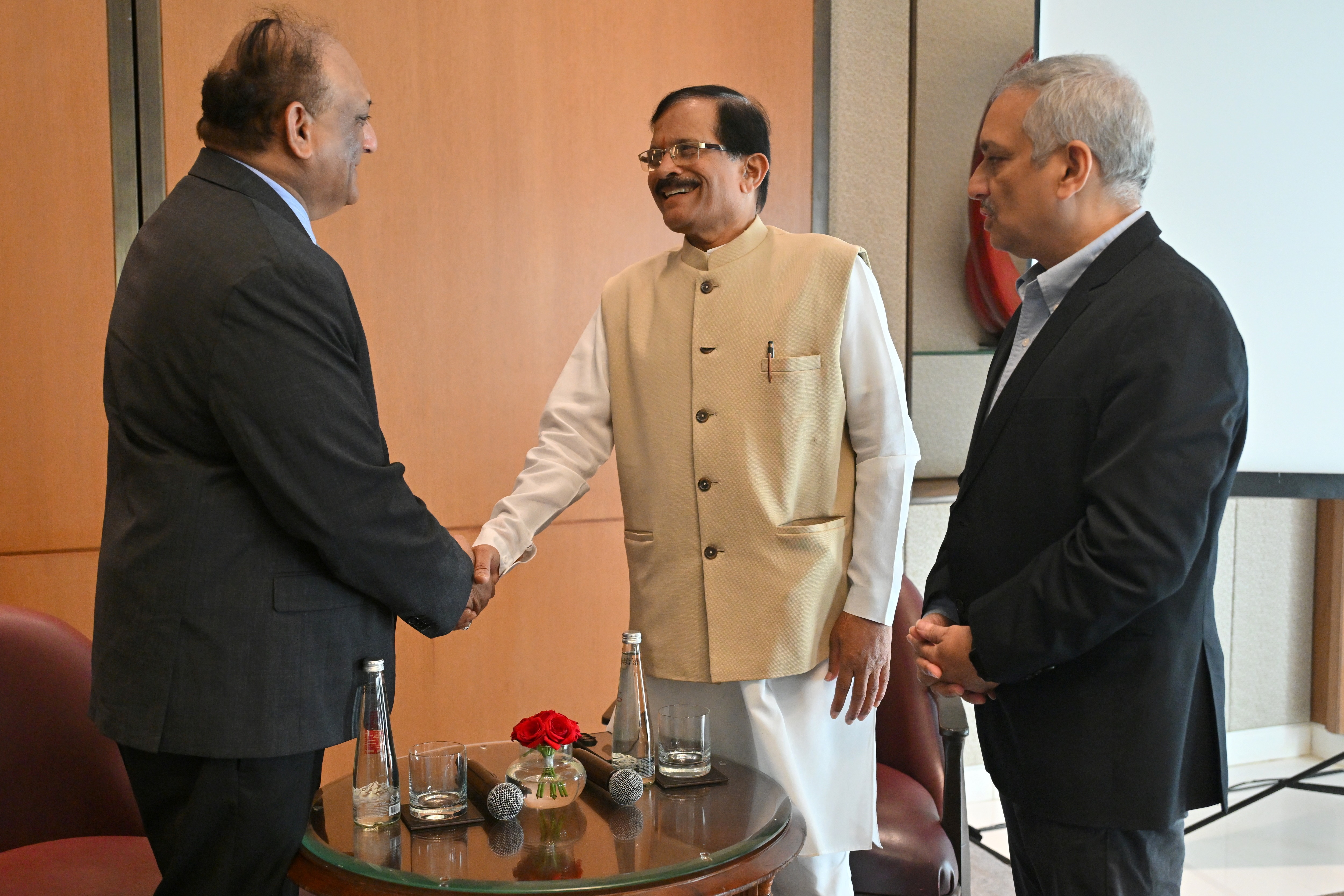
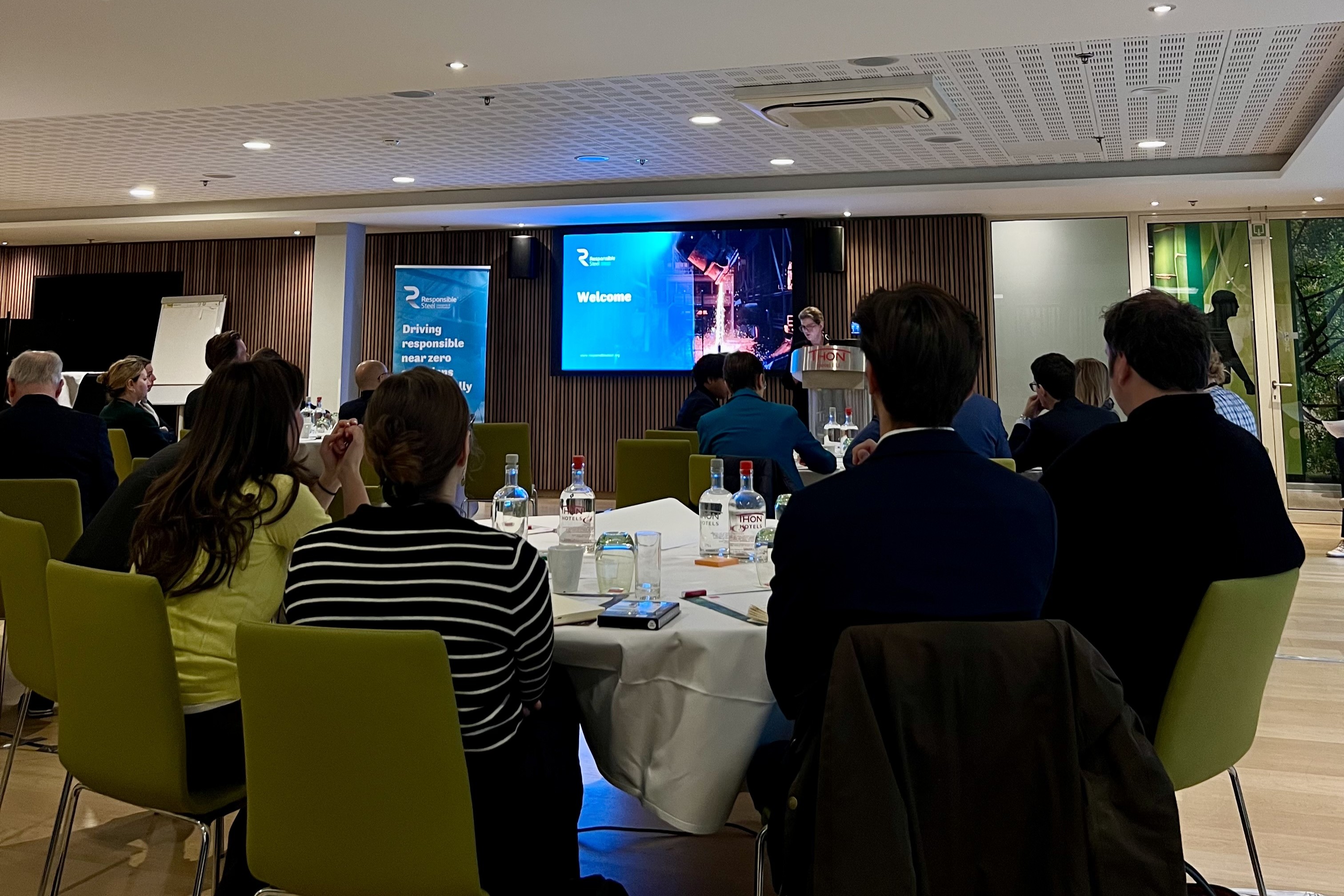
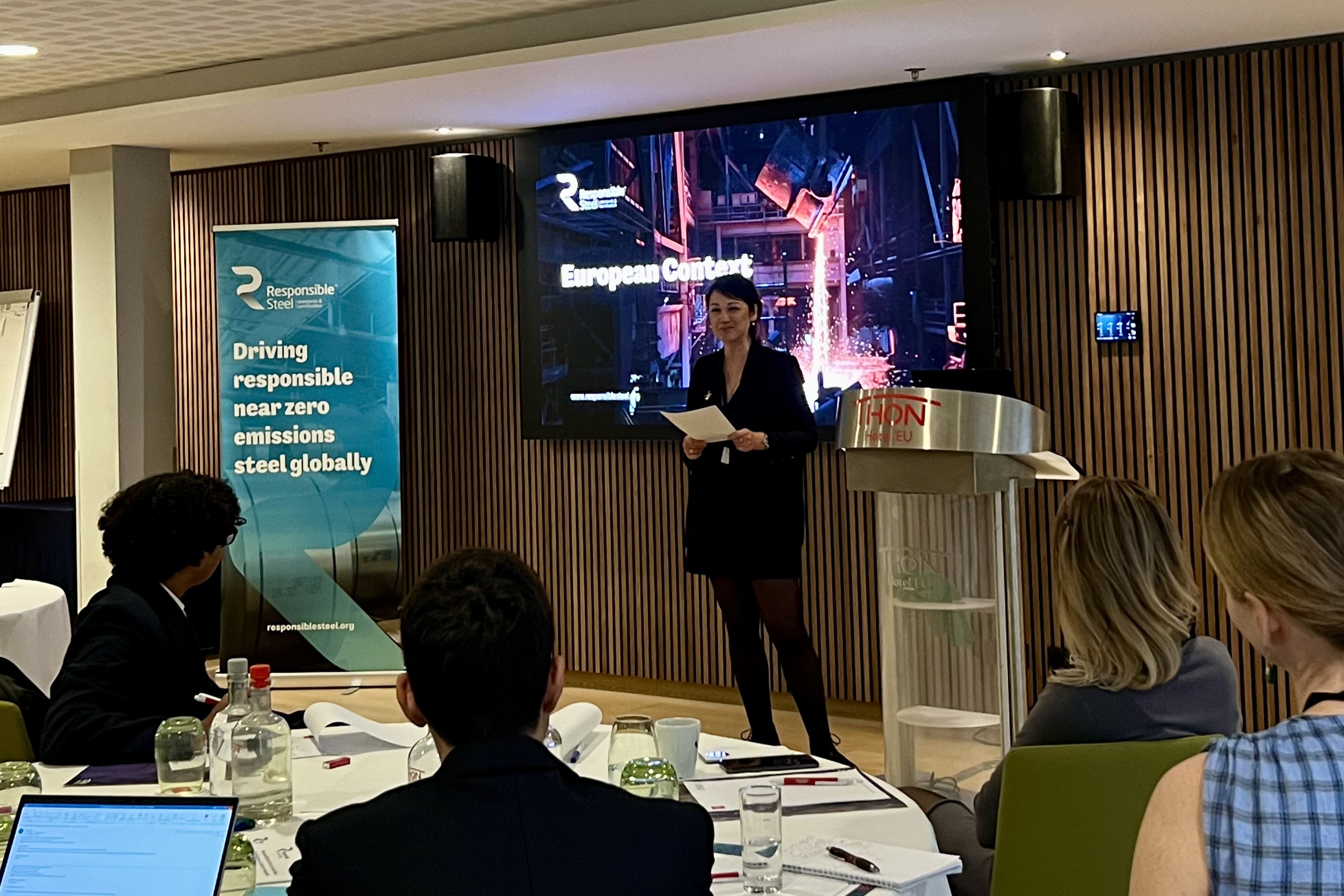
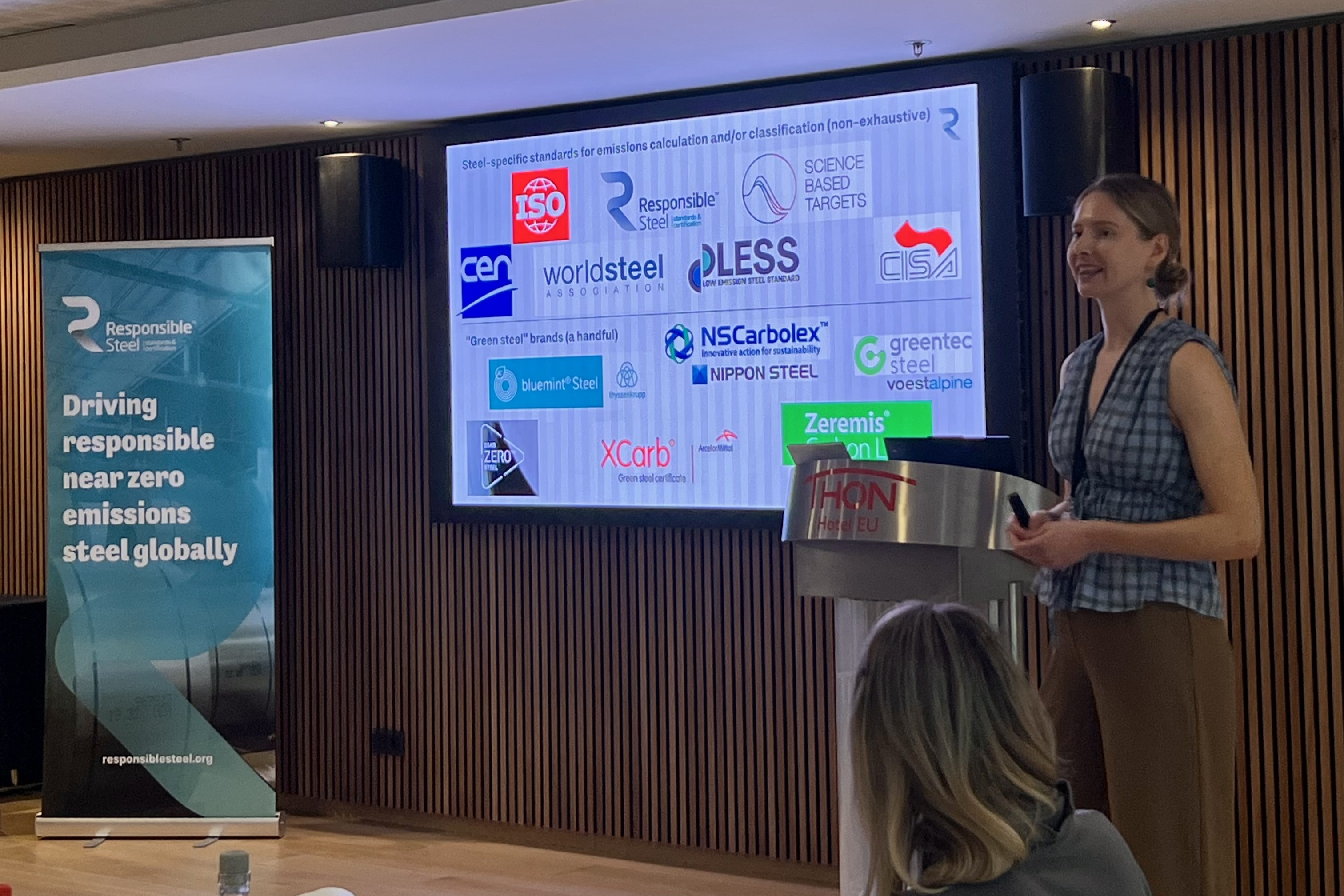
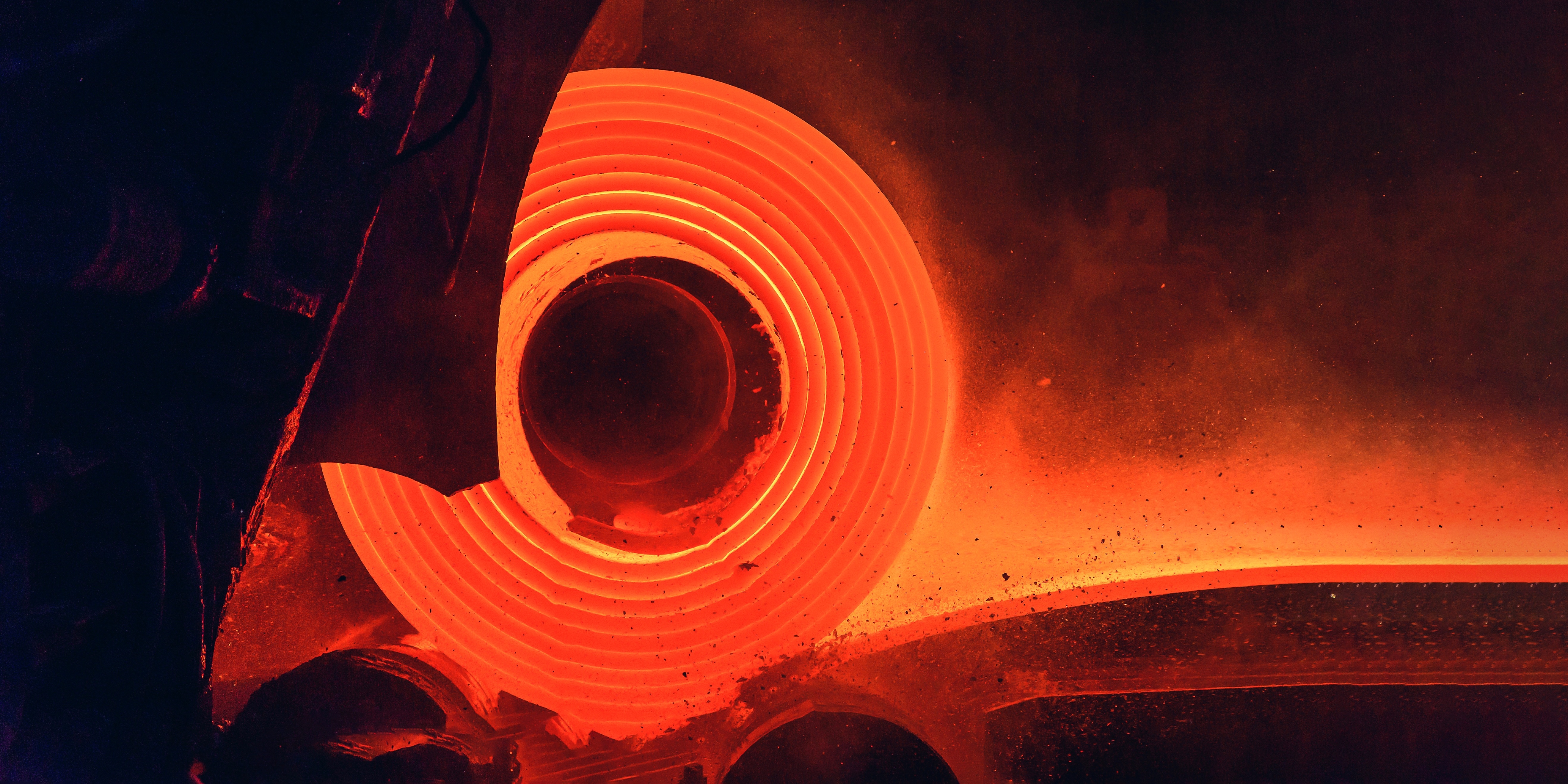
.png)
